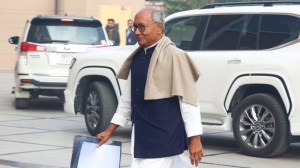One-time offer
FM P. Chidambaram has apparently raised hackles in 8220;industry8221; by asking that they do their bit at this time of crisis by ensuring prices are lower.

Finance Minister P. Chidambaram has apparently raised hackles in 8220;industry8221; by asking that they do their bit at this time of crisis by ensuring prices are lower. It would be 8220;wiser8221;, according to Chidambaram, to make a few sacrifices of value to try and keep your employees loyal, to try and keep inventories moving, to try and keep customers satisfied. 8220;Industry8221; was apparently deeply dismayed; though the heads of bodies such as the Confederation of
Indian Industry and the Federation of Indian Chambers of Commerce and Industry both made conciliatory statements 8212; the former expressing confidence that many segments would see new prices soon, and the latter insisting that new business models, focussing on high volume and low margins, were needed at this time.
Normally, any raised hackles would be completely justified.
We are not supposed to be a state-directed economy any more, and India8217;s high-growth years this decade have been powered by the entrepreneurial private sector. The finance minister8217;s personal preferences shouldn8217;t usually carry any weight: after all, commercial interests are fighting on the front lines and are best able, in normal circumstances, to figure out what price response will best preserve the Indian growth story. But these are not normal circumstances. Banks are worried, consumers are hurting, the first, tenuous political gains of liberalisation are at stake. If there8217;s anything in industry8217;s interest, it8217;s to react quickly and adaptively, and that is what the finance minister was urging them to do.
Remember, this was being held out as part of a bargain. Help yourselves, by considering a quick modification of business practices, by trimming operational fat; and the government will help you help yourselves, by trying to minimise the impact of unpredictable risk on sectors. Chidambaram even said that sector-specific deals might be workable in this climate 8212; normally an invitation to rent-seeking, but in this case a simple expression of pragmatism. Credit remains a problem, true; but banks living in fear of large-scale default cannot paralyse Indian companies when the crisis demands that they adapt fast. Those companies are among the best in the developing world, with managerial depth and expertise that have contributed significantly to the Indian growth story. Now, in trying times, comes another test of their mettle: and the finance minister shouldn8217;t be attacked for trying to coordinate their response to this test.
- 01
- 02
- 03
- 04
- 05































